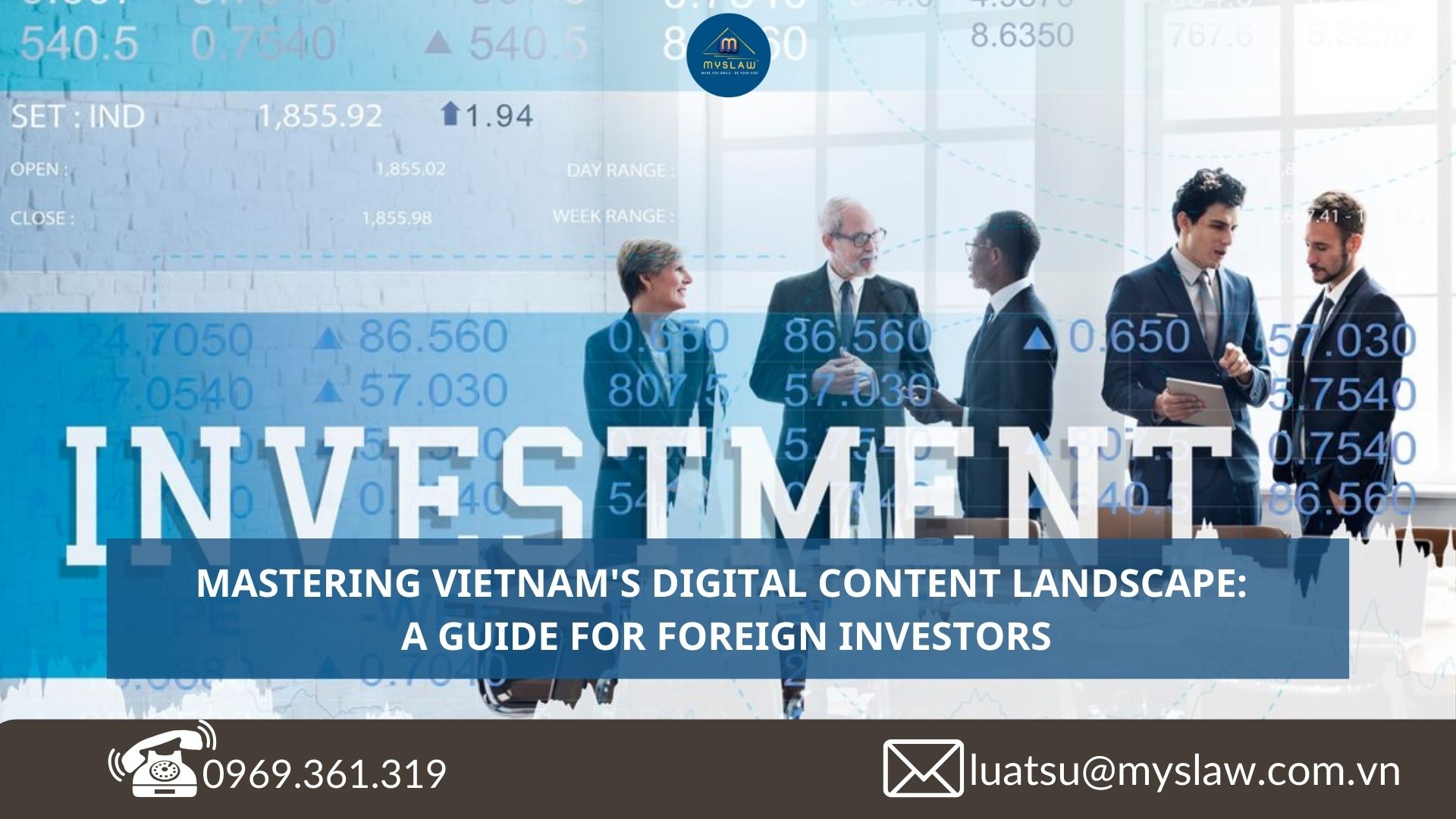1. Introduction
In the rapidly evolving digital landscape of Southeast Asia, Vietnam has emerged as a thriving hub for digital content creators and distributors. With over 70 million internet users as of 2024, the country offers unparalleled opportunities for foreign investors. However, this promising market comes with its share of regulatory complexities.
This guide serves as a roadmap for foreign investors navigating Vietnam’s digital content regulations. Beyond compliance, understanding the legal landscape is key to achieving sustainable success in a competitive market.
2. Current State of Vietnam’s Digital Content Market
Vietnam’s digital content market is flourishing due to:
- A young, tech-savvy population with high smartphone penetration.
- Increasing internet accessibility and speeds.
- Growing disposable incomes fueling demand for digital services.
- Government initiatives promoting digital transformation.
Local players like VNG and Zalo dominate alongside global giants like Facebook and Google. Notable trends include rising demand for localized content, live streaming, and mobile gaming. These factors present a mix of challenges and opportunities for foreign investors.
3. Overview of Vietnam’s Digital Content Regulations
Vietnam’s digital content regulatory framework is shaped by several government bodies:
- Ministry of Information and Communications (MIC).
- Ministry of Culture, Sports, and Tourism.
- Authority of Broadcasting and Electronic Information.
Key laws and decrees include:
- Law on Cybersecurity (2018): Focuses on data localization and cybersecurity.
- Decree 147/2024/ND-CP (effective December 25, 2024): Governs internet services and online information, addressing content moderation and violations.
- Decree 181/2013/ND-CP: Regulates online advertising.
These regulations prioritize consumer protection, cybersecurity, and transparency, shaping the operational landscape for digital service providers.
- Specific Regulations Affecting Foreign Investors
Content Licensing Requirements
Foreign companies must obtain licenses from the MIC. The process demands detailed documentation and often requires partnerships with local entities.
Ownership Restrictions
Some industries, like publishing, cap foreign ownership at 49%. Understanding these restrictions is vital for planning investments.
Content Censorship and Moderation Rules
Providers must promptly remove content flagged by authorities as violating laws, typically within 24 hours. This necessitates robust moderation systems and local legal expertise.
5. Challenges and Opportunities for Foreign Investors
Challenges:
- Complex, sometimes ambiguous regulations.
- Stringent data localization requirements.
- Cultural and language barriers in content creation and moderation.
Opportunities:
- A growing appetite for high-quality, localized content.
- Partnerships with local firms can ease market entry.
- Government initiatives promoting digital innovation.
Successful strategies often involve proactive engagement with regulators, localization investments, and collaboration with Vietnamese partners.
6. Case Studies
Netflix in Vietnam
Since entering Vietnam in 2016, Netflix has complied with content quotas by investing in locally produced shows and partnering with local ISPs.
Spotify’s Market Entry
Spotify’s 2018 launch involved navigating music licensing laws and collaborating with Vietnamese artists to offer a tailored user experience.
These examples underscore the importance of regulatory compliance and local adaptation for market success.
7. Future Outlook
Vietnam’s digital regulatory landscape is poised to evolve further. Expected changes include:
- Enhanced enforcement of data localization.
- New regulations for AI and blockchain in content creation.
- Potential easing of foreign ownership limits in select industries.
Emerging opportunities lie in mobile gaming, e-learning, and localized streaming content.
8. Conclusion
For foreign investors, Vietnam’s digital content market offers vast potential but requires strategic navigation of its regulatory framework. Key success factors include:
- Thorough understanding of regulations.
- Strong partnerships with local stakeholders.
- Flexibility to adapt to changing laws.
By embracing compliance and investing in localized solutions, foreign investors can secure a strong foothold in Vietnam’s dynamic digital ecosystem.
The above information is provided by Mys Law. For any questions regarding the content of this article, please contact 0969.361.319 or email: [email protected] for further clarification. Best regards!
Compiler: Nguyen Anh Quan






